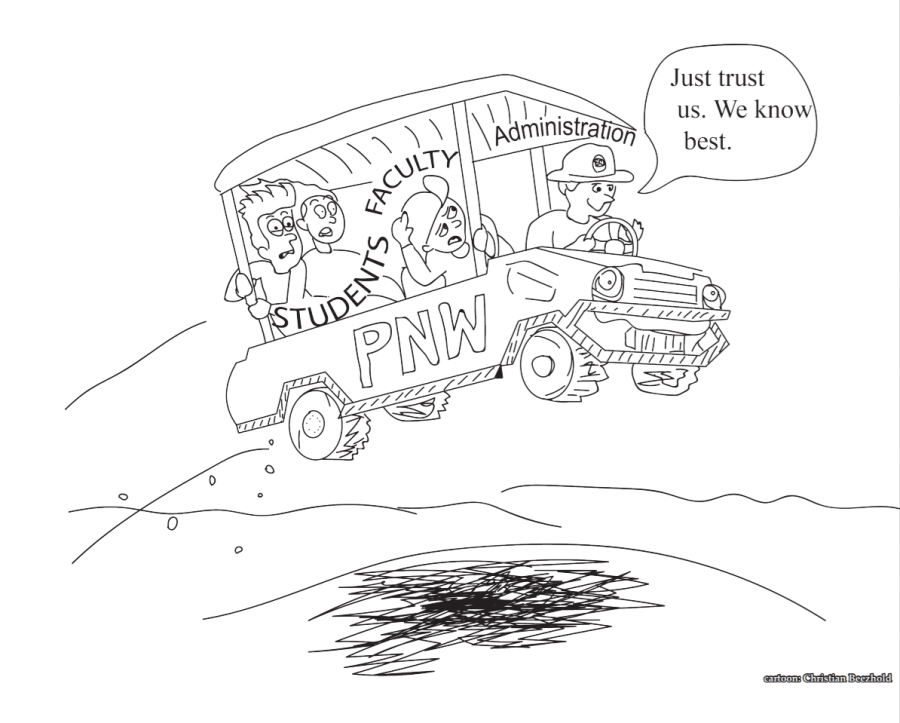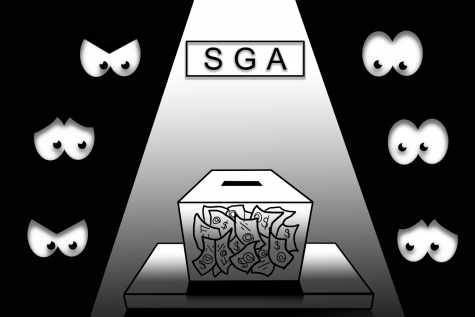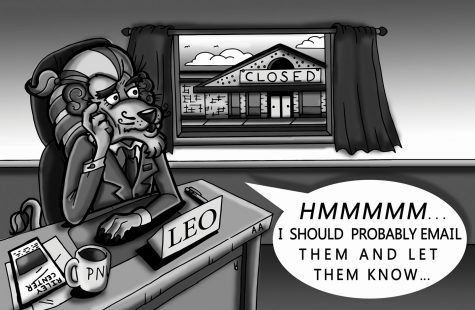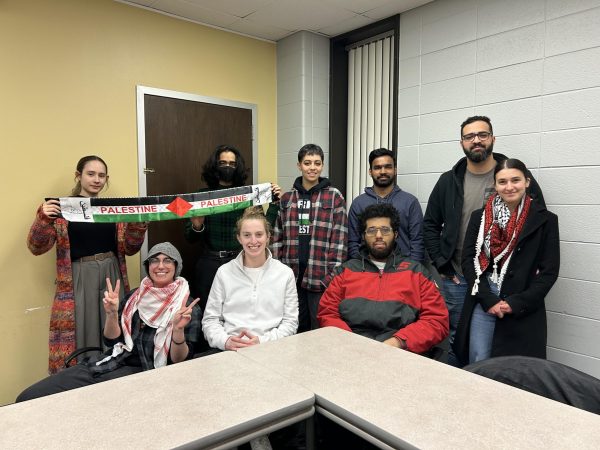Editorial: Faculty input takes back seat
The Imagine PNW announcement is only the most recent example of a pattern that has been present since the start of PNW: unilateral decisions made by PNW’s senior administration. In fact, the recent chasm over Imagine PNW between senior administration and Faculty Senate members is symptomatic of a recurring failure by senior administration to seek input before decisions are made.
The Pioneer called attention to previous unilateral decisions, such as the unification of Purdue Calumet and Purdue North Central in February 2014, the decision to join the Great Lakes Intercollegiate Athletic Conference in January 2016 and the abrupt closing of the Riley Child Center in April 2017, by senior administration in an April 2017 editorial titled ‘PNW’s unification culture.’
The common themes between all of these decisions: there had been no prior announcements, no prior input from faculty and no mechanism that showed that senior administration surveyed or sought input from university faculty or students before the decisions were made.
Imagine PNW, a program which plans to have faculty and staff evaluate PNW’s academic and support programs and make recommendations on the future of these programs, at face value, seems like a solution to the recurrent budget deficits that have troubled PNW for the past two years. It’s being sold as a way to find what PNW is good at and to further support these areas.
The unveiling of Imagine PNW, however, shows many of the warning signs that were missed during past instances of go-it-alone behavior from senior administration.
Imagine PNW was announced on May 4, after Faculty Senate had already departed for the summer. The announcement laid out a comprehensive two-year timeline, equipped with dates and goals, even though faculty had yet to give input on the plan.
The faculty and staff members of the taskforces who will evaluate PNW’s 300 programs, while nominated by faculty and staff, are chosen by two senior administration members: Ralph Mueller, vice chancellor for Academic Affairs and Provost, and Stephen Turner, vice chancellor for Finance and Administration.
And, Imagine PNW did not need Faculty Senate approval as it was dubbed as evaluative, and in no way affecting curriculum. But, its main objective is to review and find programs which contribute to PNW and invest in them, possibly depriving other, less-contributive programs of their resources – an objective that seems directly related to curriculum.
Regardless of intention, Imagine PNW is another decision by senior administration that circumvents the checks and balances of the Faculty Senate. And whether or not it will have beneficial effects on the university, the way in which Imagine PNW was presented by senior administration is telling of senior administration’s lack of regard for faculty input.
Instead of engaging in constructive dialogue with faculty, staff and students, senior administration constantly tells anyone who raises concerns to trust them to do what is best for the university and they dismiss any problems raised.
But trust does not come without verification. The Faculty Senate exists to advise the administration and should be included in decisions to keep the administration from pushing through their sole agenda without second thought.
A simple start for the administration would be to take the time to listen to the Faculty Senate. But faculty input would need to be valued for that to work. As Mueller said during the Sept. 14 meeting: “This is my third year and we haven’t talked about anything important yet.”
The issues are important. This issue is important. The warning signs are here, and before more abrupt announcements are sent to inboxes, senior administration needs to be made aware that after-the-fact-input will not suffice for a voice from faculty, staff or students.









